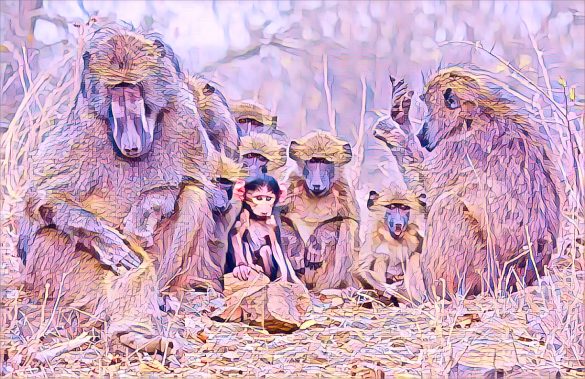Kariba, Zimbabwe – Baboons are wreaking havoc in Kariba, with an alarming increase in human-wildlife conflict driven by an El Niño-induced drought. The drought has drastically reduced food and water sources, pushing the baboons into urban areas in search of sustenance.
Residents are on edge as these primates raid homes and shops, causing damage and creating health hazards. “We’ve never seen anything like this,” says local shopkeeper Tendai Mutasa. “They come in groups, taking whatever they can find. It’s frightening.”
The Zimbabwe Parks and Wildlife Management Authority (ZimParks) reports a significant rise in baboon-related incidents over the past few months. Officials attribute this spike to the severe drought, which has not only diminished natural food supplies but also disrupted the baboons’ natural habitats.
“The drought has forced wildlife closer to human settlements,” explains ZimParks spokesperson Tinashe Farawo. “We are doing our best to manage the situation, but the challenges are immense.”
Efforts to mitigate the conflict include increased patrolling and community education programs. ZimParks has also deployed teams to capture and relocate particularly troublesome baboon troops. However, these measures are only temporary fixes to a deeper environmental crisis.
Environmental experts warn that the situation could worsen if the drought persists. El Niño, a climate phenomenon characterized by warming ocean temperatures in the Pacific, often leads to extreme weather patterns, including prolonged droughts in southern Africa.
Local authorities are urging residents to secure their properties and avoid leaving food outdoors. They also recommend using deterrents such as noise makers and water sprays to keep baboons at bay.
Despite the immediate challenges, there is hope. Conservationists are calling for long-term solutions to address both the human-wildlife conflict and the broader environmental issues. These include habitat restoration projects and sustainable water management practices to support wildlife and reduce their dependence on human areas.
For now, the people of Kariba are adapting as best they can, hoping for relief from the drought and a return to a more balanced coexistence with their wild neighbors.
Source: New Zimbabwe


